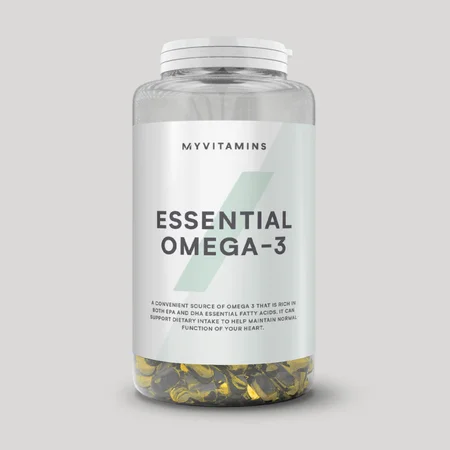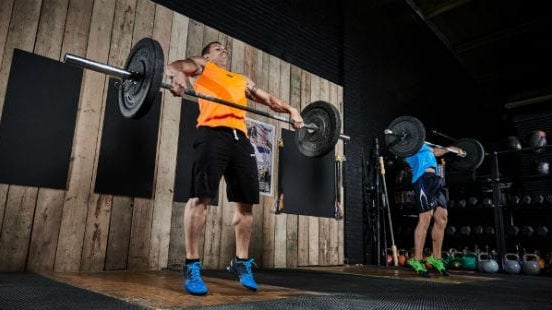How to Use Positivity to Achieve Your Fitness Goals

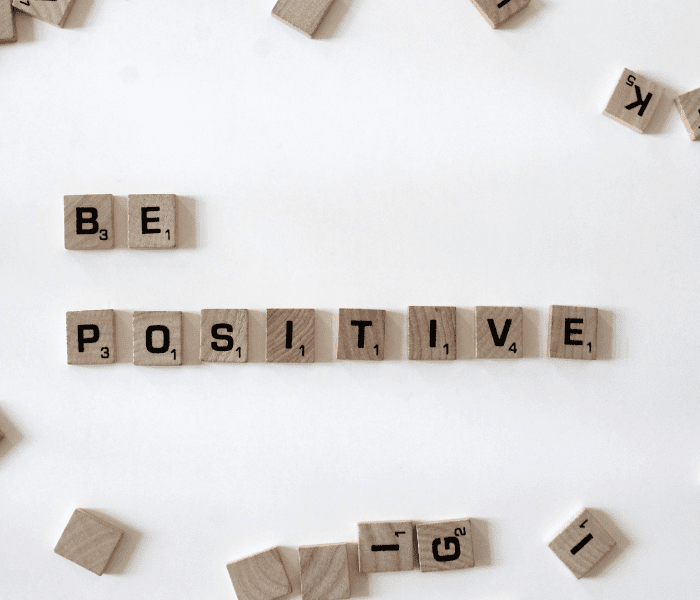
Since the onset of the pandemic, many of us have been lacking in motivation and have lost sight of our goals, both fitness and otherwise. Covid increased the prevalence of anxiety and depression by a staggering 25% worldwide.1 Many are still recovering from this and trying to get their groove back, especially when it comes to their health and fitness. According to Statista, the most popular New Year's resolution back at the beginning of 2022 was to live healthier.2
Here we’re breaking down a positive approach to achieving your fitness goals in the new year. The focus of this approach is to support yourself and prioritize your health (mental and physical) and happiness when going after your goals.
Positive Thinking
Positive thinking is something that often goes underrated and is extremely powerful in terms of motivation and achieving goals. Not only that, positive thinking has a host of health benefits in of itself. According to the Mayo Clinic, some health benefits of positive thinking include increased longevity, lower rates of depression and pain, and overall better psychological and physical well-being.3
The language you use with yourself affects your mind, happiness, and motivation. So this year, when outlining and trying to achieve your fitness goals, make sure you stay positive. This means creating fitness goals from a positive perspective such as "I want to lift heavier weights this year so I can be stronger", rather than "I need to exercise because I don't like my body". Creating goals using positive language will remove a lot of the stress that comes with goals that are born from negative thoughts. The idea is to create goals that you will want to accomplish, not ones you feel you have to accomplish.
This includes not being hyper-critical of yourself. If you miss a day at the gym, don't tear yourself down over it. Simply take it day by day, and try to do better tomorrow.
Allow yourself to fail as many times as it takes, the important thing is that you keep trying. Also be sure to reward yourself for small achievements and record your progress to keep yourself motivated.
Positive Reinforcement
You can motivate yourself to accomplish your fitness goals by using positive reinforcement and rewarding yourself with something you love after working out. Positive reinforcement is a technique people use to push themselves to perform a certain behavior by introducing a desirable outcome after performing the behavior.4 So for example, if you love watching movies, you can reward yourself with a movie every time you work out to motivate yourself to keep exercising.
You can also achieve a similar effect by combining working out with something enjoyable and gain motivation through positive associations. One way you can do this is by forming connections at the gym. Whether you get a personal trainer or get some of your friends to join you for workouts, having connections at the gym will give you something to look forward to when going to work out. This will help you associate working out with something positive. Having a sense of community at the gym is super helpful for motivation and will allow you to make new friendships and connections while accomplishing your fitness goals. This way, when you go to work out, you aren't just going to get exercise in, but you're going to chat and socialize, and spend time with friends.
Health-Oriented Goals
Part of a positive approach to accomplishing your fitness goals is creating health-oriented goals rather than image-oriented ones. This means that your fitness goals should be centered around things you want to improve health-wise. For instance, if you want to be leaner, your goal should be to build muscle, and get to a muscle mass percentage that is healthy for your weight. The goal should not be to achieve a specific aesthetic. The focus here should be on creating a better version of yourself in terms of health, strength, or endurance, and not changing the way you look to fit a certain mold.
Now, there’s nothing wrong with wanting to achieve a certain aesthetic. But chasing after image-oriented goals can cause feelings of shame and unhealthy comparison, and this can stifle motivation. If you create a health-oriented goal, rather than focusing on appearance, you can remove a lot of those negative emotions and stress.
Check out what fitness pro Lucy Davis has to say about going after aesthetic goals:

Training For A Thigh Gap Is BS, Here's Why
Train because of how it makes you feel, not because of how it makes you look....
In line with creating health-oriented goals, you can work with a nutritionist, doctor, or personal trainer to guide your diet and exercise routine. With the help of professionals, you can create fitness goals that simultaneously target your health needs, helping to improve your overall well-being and allowing you to feel your best.
Trying New Things
With the new year, comes new opportunities. Don’t be afraid to try workouts you’ve never heard of before. A positive mentality means being okay with getting out of your comfort zone and trying things you’ve never tried. People are often afraid to join new workout classes or even join a gym out of fear they aren't fit enough or don't belong. This year is about letting go of those fears and being confident in yourself.
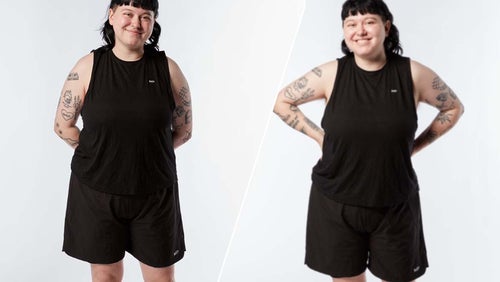
Overcoming Gymtimidation | 60-Day Transformation
Happier, stronger and more confident....
This will give you a sense of accomplishment and pride. You may also find new workouts you really enjoy and can incorporate into your routine on a regular basis.

Four Creative Workouts that Will Spice Up Your Routine
Try something new with these four creative workouts that will be sure to put a k...
Take Home Message
To wrap it all up, when setting your fitness goals for this year, try to incorporate positivity as much as possible. Positive thinking and associations can influence real change and will not only help you accomplish your goals, but will leave you feeling empowered and likely increase your confidence.
Additionally, connecting your fitness goals with other aspects of your life like health and social connections will create a strong motivation to keep at it, and will let you see the positive results of your work in multiple areas of life. So ring in 2023 with a positive mindset and actions, and you'll be ready to tackle your fitness goals for the new year.
READ THESE NEXT:
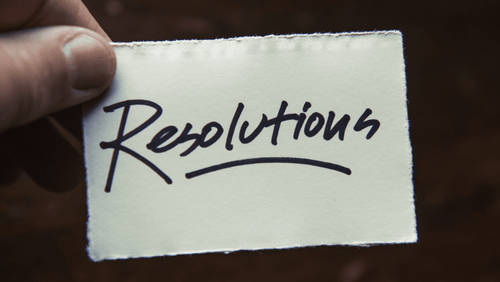
Micro-Goals and Habits: How to Set Realistic Expectations This New Year's
Learn to tackle your resolutions this new year with a winning strategy: Micro-go...

Project 50 Challenge | Making Positive Change
Create positive change in your life, one small habit at a time. ...

Here's the Tea: Studies Show Drinking Tea Boosts Longevity
Drinking tea isn't just for the taste; see the latest research on the health ben...

A Rutgers University Honors graduate, Jamie grew up on the Jersey shore and double majored in Comparative Literature and Anthropology in college. Jamie is an experienced writer in the health and wellness, biotech, and eCommerce fields. She loves writing with a purpose and has even written for the Department of Justice.
Jamie became drawn to exercise during her time in university and began to notice the physical and mental benefits of moving your body daily. Today, Jamie enjoys Pilates, light weight training, and going on long walks in nature daily.
Jamie is also passionate about eating right and prioritizing gut health and immunity. She is always trying the next innovation in health and wellness. When she’s not writing articles, Jamie enjoys reading, playing guitar, and finding dogs to play with.
1.World Health Organization. (2022, March 2). Covid-19 pandemic triggers 25% increase in prevalence of anxiety and depression worldwide. World Health Organization. Retrieved December 11, 2022, from https://www.who.int/news/item/02-03-2022-covid-19-pandemic-triggers-25-increase-in-prevalence-of-anxiety-and-depression-worldwide
2.Published by Statista Research Department. (2022, November 15). United States: New Year’s resolution for 2022. Statista. Retrieved December 11, 2022, from https://www.statista.com/statistics/378105/new-years-resolution/
3.Mayo Clinic Staff. (2022, February 3). How to stop negative self-talk. Mayo Clinic. Retrieved December 11, 2022, from https://www.mayoclinic.org/healthy-lifestyle/stress-management/in-depth/positive-thinking/art-20043950#:~:text=The%20health%20benefits%20of%20positive%20thinking&text=Lower%20rates%20of%20depression,psychological%20and%20physical%20well%2Dbeing
4.Boutros, N. (2022). Positive reinforcement: Definition, theory, & examples. The Berkeley Well-Being Institute. Retrieved December 11, 2022, from https://www.berkeleywellbeing.com/positive-reinforcement.html

